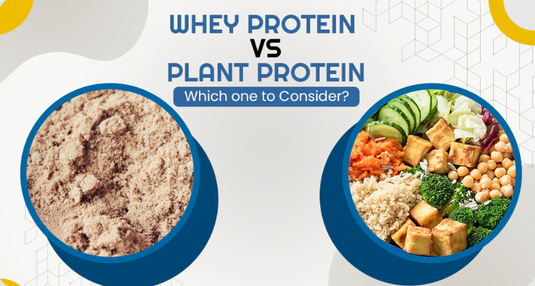Introduction
In the age of social media, fitness enthusiasts are bombarded with images and videos of "perfect" bodies and seemingly effortless workouts. While these posts can serve as inspiration, they can also lead to unrealistic expectations, feelings of inadequacy, and a loss of motivation. But is social media truly the culprit behind the decline in our fitness motivation? This blog delves into the murky waters of social media's impact on fitness, uncovering surprising facts and sparking a conversation about how we perceive our bodies and goals.
The Double-Edged Sword of Social Media
Social media platforms like Instagram, Facebook, and TikTok are powerful tools that connect people worldwide. They offer a platform for sharing fitness journeys, success stories, and workout tips. However, these same platforms also propagate an idealized image of fitness that can be detrimental to our mental health and motivation.
The Allure of the "Perfect" Body
Scroll through any fitness influencer's profile, and you'll find a gallery of toned abs, sculpted muscles, and flawless skin. These images are often accompanied by captions promoting discipline, hard work, and dedication. While there's no denying the effort behind these physiques, the reality is often obscured. Many influencers use professional photographers, lighting, and even photo-editing software to enhance their appearance. The result is an unattainable standard that can leave followers feeling inadequate and demotivated.
The Psychology of Comparison
Human beings are naturally inclined to compare themselves to others. This tendency, known as social comparison theory, can be both beneficial and harmful. On one hand, comparing ourselves to those who are slightly ahead of us can motivate us to improve. On the other hand, when we compare ourselves to highly idealized images, it can lead to feelings of inferiority and diminished self-worth.
Studies have shown that exposure to idealized body images on social media can lead to negative body image, depression, and anxiety. A 2015 study published in the Journal of Youth and Adolescence found that social media use was associated with greater body dissatisfaction among adolescents. This dissatisfaction can, in turn, decrease motivation to pursue fitness goals, as individuals may feel that they can never measure up to the perfection they see online.
The Impact of Influencers
Fitness influencers wield significant power over their followers. They can inspire positive changes, but they can also perpetuate harmful myths and unrealistic standards.
The Cult of Celebrity
Fitness influencers often attain a celebrity-like status, amassing millions of followers and lucrative endorsement deals. This status can lead followers to place undue trust in their advice, even when it may not be scientifically sound. Influencers often promote products and routines that may not be effective or safe for everyone, further complicating the fitness journey for their followers.
The Myth of Effortless Fitness
Many influencers present a skewed version of reality, showcasing only the highlights of their fitness journey. They often omit the struggles, setbacks, and sacrifices required to achieve their physiques. This selective sharing can create the illusion that fitness is easy and effortless, leading followers to become disheartened when they encounter challenges.
The Dark Side of Fitness Challenges
Fitness challenges are a popular trend on social media, encouraging followers to participate in specific workouts or diets for a set period. While these challenges can provide structure and motivation, they can also be harmful.
Unrealistic Expectations
Fitness challenges often come with promises of rapid transformation, which can set unrealistic expectations. When followers fail to achieve the promised results, they may feel discouraged and give up on their fitness goals altogether.
The Pressure to Perform
Participating in a fitness challenge can also create pressure to perform and share progress publicly. This pressure can lead to unhealthy behaviors, such as overtraining or extreme dieting, in an attempt to meet the challenge's demands.
The Role of Algorithms
Social media algorithms play a significant role in shaping our online experiences. These algorithms prioritize content that generates high engagement, often pushing idealized images and sensationalized fitness trends to the forefront.
The Echo Chamber Effect
Algorithms create echo chambers, where users are repeatedly exposed to similar content. For fitness enthusiasts, this means constant exposure to idealized bodies and extreme fitness routines. This echo chamber can reinforce unrealistic standards and perpetuate feelings of inadequacy.
The Impact on Mental Health
Constant exposure to idealized images can take a toll on mental health. A 2018 study published in the Journal of Social and Clinical Psychology found that limiting social media use to 30 minutes per day significantly reduced feelings of loneliness and depression. This suggests that excessive social media use can contribute to negative mental health outcomes, which can, in turn, affect fitness motivation.
Breaking the Cycle
While social media can be a source of fitness demotivation, it's possible to break the cycle and use these platforms in a way that supports our goals.
Curating Your Feed
One way to mitigate the negative impact of social media is to curate your feed. Follow accounts that promote realistic and diverse body images, and unfollow those that make you feel inadequate. Seek out influencers who share both their successes and struggles, providing a more balanced view of the fitness journey.
Setting Realistic Goals
Instead of comparing yourself to idealized images, set realistic and personal fitness goals. Focus on progress rather than perfection, and celebrate small victories along the way. Remember that fitness is a lifelong journey, not a destination.
Mindful Social Media Use
Be mindful of how much time you spend on social media and how it makes you feel. If you find that social media use negatively impacts your mental health and motivation, consider taking breaks or limiting your usage.
Conclusion
Social media has a profound impact on our fitness motivation, often perpetuating unrealistic standards and leading to negative self-comparisons. However, by being mindful of our social media use and curating our feeds to include realistic and diverse representations of fitness, we can mitigate these negative effects. Remember that fitness is a personal journey, and the only person you should compare yourself to is the person you were yesterday.
Postscript: A Message from ELIGATOR NUTRITION
At ELIGATOR NUTRITION, we believe in promoting a healthy and realistic approach to fitness. Our products are designed to support your fitness journey, not define it. Remember, the most important thing is to stay true to yourself and your goals. Don't let social media dictate your self-worth or motivation. Stay strong, stay motivated, and most importantly, stay healthy.




Receive the Blog via Email Daily
Please fill out the form below and we’ll get back to you within 24 hours.




















